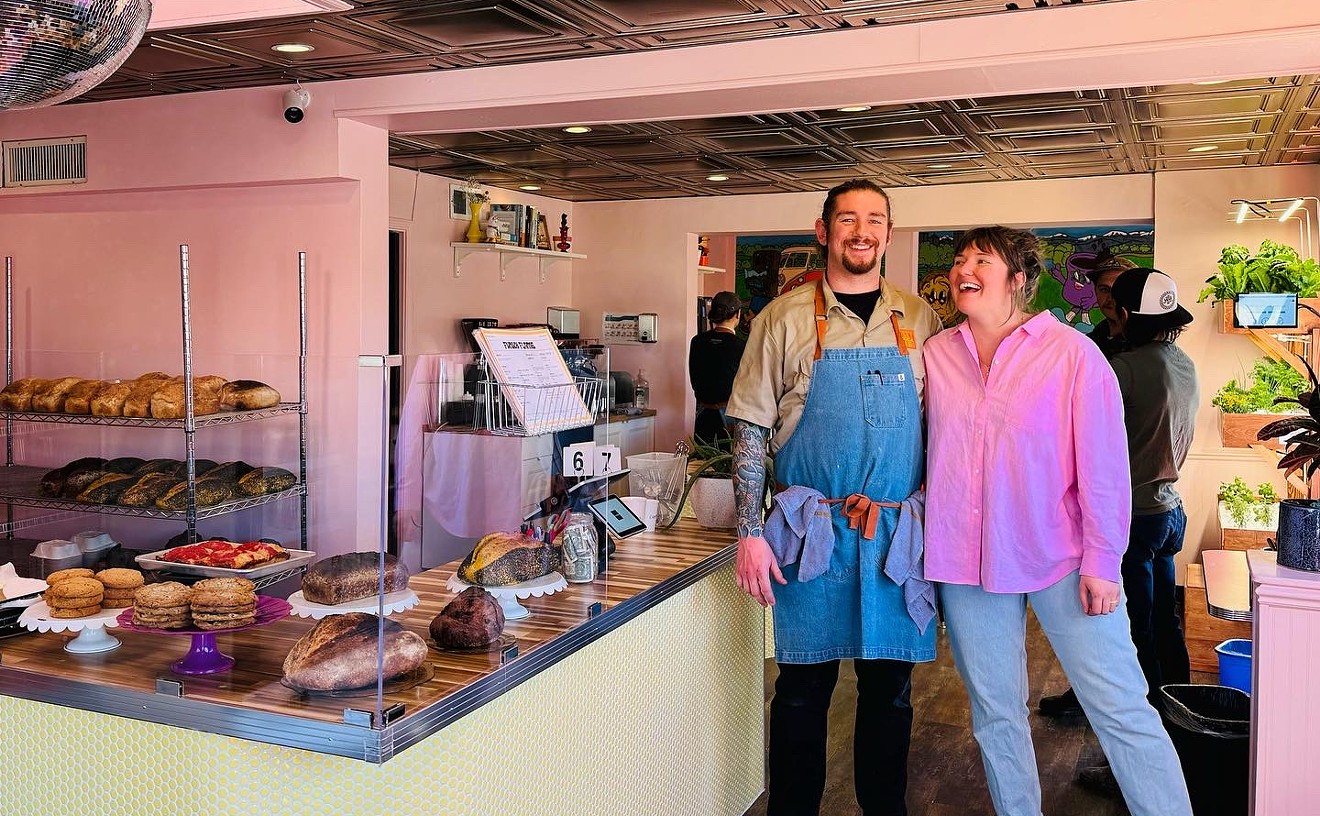See also: Reader: The Worst Restaurant in America Is Everywhere -- it's McDonald's
Jesus Alaniz, who once wored for the fast-food industry, organized the demonstration to raise awareness of working conditions at all fast-food restaurants, not just McDonald's. "I used to work for McDonald's," he said, "but there were a lot of wage injustices. That's why we're doing this right now."
Alaniz said he hopes the recent NLRB decision will lead to an across-the-board hike in the minimum wage for fast-food employees to $15 an hour; Colorado's minimum wage is currently $8 an hour. "They have enough money to bump it up a little bit," he said, referring to a similar minimum-wage hike in California to $11 per hour. "They're still fighting for more."
Alaniz and his fellow protesters are also seeking the right to form a fast-food employees' union. "People don't get enough hours," he explained. "Sometimes they work twenty hours, and the next week they work thirty hours." Alaniz sees unionization as a way to gain a seat at the bargaining table with fast-food corporations to discuss improving working conditions. In the past, grievances brought to the corporate headquarters were deferred to local, individually run restaurants. "If you go to the corporation," he explained, "the corporation will not deal with that case." The NLRB decision could change that.
But that might not improve conditions at this particular McDonald's.
While the protesters chanted on the sidewalk just steps from the front door, a busy lunch rush was in full swing inside the McDonald's. Tom Carlson Jr., owner of the restaurant; was there eating with his family; he said he wasn't even aware the protest was taking place."I don't have anybody in the restaurant who makes minimum wage, so that's really a non-issue," Carlson said of the demands. "We do a really nice job in our organization with our employees. We provide a very competitive wage. I offer phenomenal benefits.
"I've had employees with me for fifteen, twenty years that really love what they do." Carlson added. "I provide a simple IRA. We provide matching health care, vacation benefits, meal benefits. We do two employee surveys a year where they give us feedback on what they'd like to see improve. It's really a holistic approach.
"We do a real nice job taking care of our employees," he said. "We are not a minimum-wage employer."
In November 2012, fast-food employees went on strike for higher wages in New York City; since then, there have been six similar strikes, which have expanded to 150 cities. Last May, fast-food employees traveled to the McDonald's corporate headquarters in Chicago to protest on the company's campus; more than 100 were arrested and charged with civil disobedience.
In Denver, Alaniz is part of a loose coalition of labor organizations that plan to continue the march toward their goal of $15 per hour and the right to form a union. "We're doing this just for McDonald's today because of the rule that just passed," Alaniz said, "but we're not just trying to focus on McDonald's. We are trying to highlight what the NLRB decided earlier in the week."When police ordered the protesters to refrain from blocking the restaurant's front door and to make way for pedestrians on the sidewalk, the demonstrators moved to the median of 16th Street, and eventually disbanded.
Alaniz says the group will conduct another action in about a month.
Follow @CafeWestword










